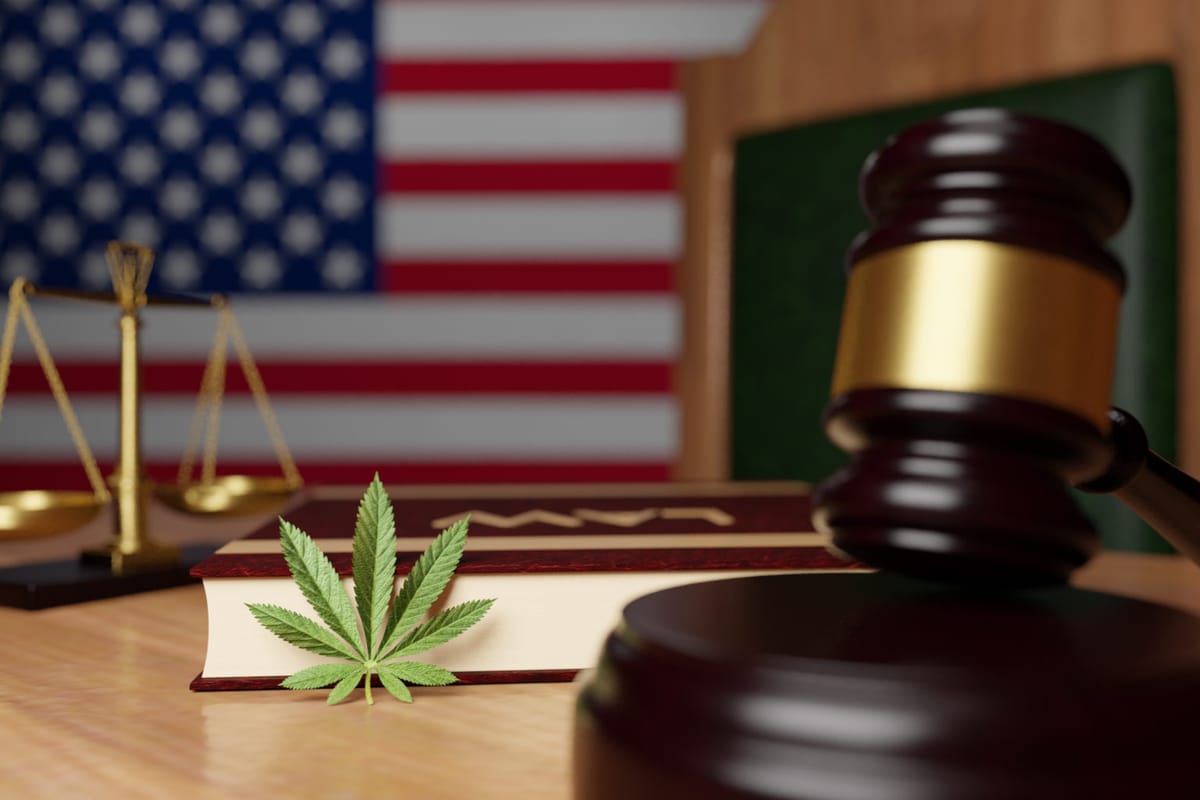I motion the Common Council directs the City Attorney to challenge the Constitutionality of Wisconsin's Uniform Controlled Substances Act and proactively enact ordinances for the legalization of consuming Marijuana in specially-licensed venues and outdoors - as well as the production of Marijuana in licensed hydroponic grow houses as with a hefty tax schedule for both the sale and production of Marijuana.
Our neighboring states Minnesota, Illinois and Michigan have already legalized Marijuana for recreational use - and thus many Wisconsinites and Milwaukeeans purchase Marijuana in those states and bring them across our borders. To ignore that a substantial portion of the population illegally procures, consumes and procures Marijuana in Milwaukee is an affront to common sense as well as liberty.
It is obvious that the regulation of this industry would decrease the consumption by minors and provide a much needed injection of tax revenue that would transform the funding of Schools and other public services in the City of Milwaukee.
Personally, due to my "mental health" issues I have refrained from consumption of Marijuana since 2008, and not regularly since 2001 - and I would continue to do so.
1. Non-delegation / Separation-of-powers
Art. IV § 1 (“All legislative power… shall be vested in a senate and assembly”).
Core claim
Chapter 961 lets the Controlled Substances Board (an executive-branch body housed in DSPS) decide what conduct is criminal whenever it adds, deletes, or reschedules a drug under §§ 961.11, 961.16-.22. Because a schedule change instantly alters felony and misdemeanor coverage, the Board is doing more than “filling in details” — it is writing new criminal law without the Legislature’s vote, violating Art. IV § 1.
How to frame it
- Identify the delegation: § 961.11(4m)–(6) empowers the Board to “add” any substance if it believes it has abuse potential.
- Show the standards are too open-ended: the statute incorporates eight broad factors (e.g., “scientific evidence of pharmacological effect”) but sets no weighting or procedural guardrails.
- Contrast with Wisconsin’s modern non-delegation cases:
- The Court in Koschkee v. Taylor reaffirmed that an agency may exercise only the “legislative power that comes from the Legislature, and only within limits the Legislature sets.” (law.justia.com)
- Whitman says a delegation is valid only if the purpose is “ascertainable and procedural safeguards exist.” (app.midpage.ai)
- Argue the UCSA fails “Whitman” because the Board can criminalize entirely new chemical categories with no legislative ratification period or meaningful JCRAR oversight.
Quick rejoinder to expect
The State will cite the very same Whitman line to say the eight statutory factors are sufficient standards and that the Legislature may leave scientific fact-finding to experts, especially in health matters.
2. Substantive-due-process / Liberty (Art. I § 1)
Text: “All people are born equally free … and have certain inherent rights; among these are life, liberty and the pursuit of happiness.” (law.justia.com)
Core claim
A blanket felony ban on mere possession of a plant (cannabis) or an alkaloid, absent any showing of harm to others, unreasonably intrudes on adult bodily autonomy — a fundamental aspect of “liberty” under Art. I § 1. Unlike alcohol or tobacco, whose known public-health costs the State tolerates, marijuana remains Schedule I even though it lacks the acute toxicity or abuse profile that usually justifies felony treatment. The classification therefore fails the rational-basis-plus test Wisconsin applies when fundamental liberty is implicated.
Points to emphasize
- Wisconsin courts treat Art. I § 1 as an independent font of substantive-due-process rights, sometimes more protective than the federal 14th Amendment.
- Highlight empirical disparities: cannabis overdose deaths (none) vs. alcohol; state medical-marijuana data from 38 other states; etc.
- Analogize to State v. Lobe privacy line of cases (right to decide medical matters) and to the U.S. Supreme Court’s bodily-integrity rulings in Roe, Lawrence, Dobbs dissents, etc.
3. Equal-protection / Arbitrary classification (Art. I § 1)
Core claim
Treating marijuana like heroin but treating alcohol as an ordinary consumer good is “irrational.” Because Art. I § 1 contains Wisconsin’s equal-protection guarantee, any classification that burdens a large class without a rational basis can be struck down. Data showing that prohibition disproportionately criminalizes Black Milwaukeeans can reinforce the arbitrariness point.
Litigation strategy
- Attack the scheduling criteria themselves: the statute directs the Board to consider “relative potential for abuse” and “risk to the public health,” yet marijuana and psilocybin remain Schedule I while fentanyl analogs can be placed in Schedule II.
- Offer expert testimony that the classification is unsupported, borrowing the methodology Wisconsin courts accepted in alcohol-tax equal-protection cases.
4. Home-rule interference (Art. XI § 3)
Text: Cities “may determine their local affairs and government, subject only to… enactments of the legislature of statewide concern that with uniformity affect every city.” (codes.findlaw.com)
Core claim
The UCSA is not applied uniformly because enforcement varies wildly county-to-county (many rural counties dismiss or divert, Milwaukee issues $1 forfeitures for possession under 25 g, etc.). By purporting to forbid Milwaukee from licensing or zoning cannabis businesses, the Act intrudes on a matter of purely local economic concern without true statewide uniformity, violating the Home-Rule Amendment.
Hurdles
- The State will say drug control is inherently “statewide” (indeed, national) in concern.
- Wisconsin courts usually uphold statewide pre-emption where criminal law is involved. To overcome that presumption, a challenger would need to prove the Act’s practical effect is non-uniform.
Additional, but weaker, theories
| Theory | Constitutional hook | Why it is hard to win |
|---|---|---|
| Single-subject rule | Art. IV § 18 (applies only to “private or local” bills) (cdm16831.contentdm.oclc.org) | UCSA is a general public law, so § 18 probably does not apply. |
| Cruel-or-unusual-punishment | Art. I § 6 | Wisconsin’s penalties (max 6-yr felony for repeat marijuana possession) are lower than sentences SCOTUS has upheld federally. |
Bottom line
The most conceptually robust Wisconsin-constitutional attack combines the non-delegation theory with an Art. I § 1 liberty / equal-protection claim. I would argue that (i) the Legislature unconstitutionally ceded pure law-making to the Controlled Substances Board and (ii) even if the delegation were valid, the resulting felony ban on personal cannabis possession is irrational and infringes core liberty interests.

